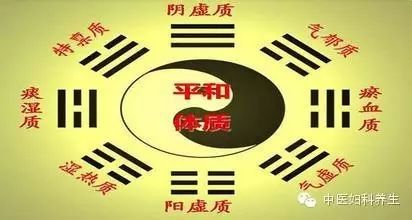
The harmonious constitution is characterized by a balance of qi (气), xue (血), yin (阴), and yang (阳), with no discomfort symptoms.
Physical characteristics: Yunchen (匀称), neither overweight nor underweight. Psychological characteristics: Calm mindset, easy-going personality, lively and cheerful. Overall symptoms: The main features include a well-proportioned body shape, rosy and radiant complexion, and abundant energy, reflecting the harmony of yin, yang, qi, and xue.
Common manifestations: Rosy complexion and skin, thick and shiny hair, bright and spirited eyes, moist and clear nose, normal sense of smell and taste, rosy lips, abundant energy, tolerance to cold and heat, good sleep, normal bowel movements, pale red tongue, thin white coating, and a soft and strong pulse.
Adaptability: Strong ability to adapt to external environments. Tendency to illness: Rarely falls ill.
TCM Health Preservation:
- Emotional regulation: Individuals with a harmonious constitution have an easy-going and cheerful personality. It is important to communicate with friends, cultivate hobbies that benefit the body and mind, be kind to others, help others, avoid comparisons, and not be overly calculative, which helps maintain a peaceful mental state and establish good interpersonal relationships.
- Dietary regulation: The diet should be rich in nutrients, with a reasonable balance of meat and vegetables, avoiding picky eating. Eating should be moderate, avoiding both hunger and overeating, and should not be excessively cold or hot. Minimize oil and salt intake.
- Daily routine adjustment: Daily activities should align with the seasonal climate characteristics, ensuring adequate sleep. In spring, go to bed early and rise early; in summer, sleep late and rise early with appropriate naps; in autumn, go to bed early and rise early; in winter, go to bed early and rise late. Adjust clothing according to climate changes. Sleep and rest should follow the four seasons: health preservation should adjust according to the yin and yang changes of the four seasons, following natural laws to receive nourishment from heaven and earth. The human biological clock aligns with the natural rhythms of the four seasons and day and night, and arranging daily activities according to these natural laws is beneficial for health. The four seasons have characteristics of spring warmth, summer heat, autumn coolness, and winter cold, and living organisms also undergo changes corresponding to spring growth, summer flourishing, autumn harvest, and winter storage. The timing of daily activities should vary according to the yin and yang relationships of the seasons; “nurturing yang in spring and summer” suggests going to bed early and rising early in spring, and sleeping late and rising early in summer, with appropriate naps due to longer days; “nurturing yin in autumn and winter” suggests going to bed early and rising early in autumn, and going to bed early and rising late in winter.
- Exercise: Depending on personal physical strength, engage in gentle exercises such as Taiji (太极拳), Wuqinxi (五禽戏), Baduanjin (八段锦), or walking. More vigorous activities such as running, basketball, volleyball, soccer, kicking a shuttlecock, dancing, aerobics, or playing diabolo can also be chosen. Long-term adherence to physical exercise can regulate qi mechanism, enhance physical fitness, and promote emotional well-being. Individuals with a harmonious constitution have abundant energy and good physical strength, allowing them to engage in both gentle and vigorous exercises according to their physical capacity and preferences.
- Meridian health maintenance: Regularly massage acupoints such as Zu San Li (足三里) and Yong Quan (涌泉). The Zu San Li point belongs to the Stomach Meridian of the Foot Yangming and is located four finger widths below the outer knee eye, one finger width away from the tibia. This point is a key health point because the spleen and stomach are the foundation of postnatal health. Regularly massaging Zu San Li can regulate the body’s immune system, enhance disease resistance, tonify the spleen and stomach, boost qi, promote circulation, dispel wind and dampness, and strengthen the body’s defenses against pathogens. The Yong Quan point belongs to the Kidney Meridian of the Foot Shaoyin and is located in the depression at the front of the foot, one-third of the way along the line connecting the tips of the second and third toes to the heel. “The Kidney emerges from Yong Quan, which is the heart of the foot.” The Kidney is the source of congenital essence; regularly massaging this point can ensure sufficient kidney essence, enhance hearing and vision, boost energy, and strengthen walking ability.
(Source: TCM Health Preservation)



